
The Scarlet Pimpernel is the first novel in a series of historical fiction by Baroness Orczy, published in 1905. It was written after her stage play of the same title enjoyed a long run in London, having opened in Nottingham in 1903.

Baroness Emma Orczy, usually known as Baroness Orczy or to her family and friends as Emmuska Orczy, was a Hungarian-born British novelist and playwright. She is best known for her series of novels featuring the Scarlet Pimpernel, the alter ego of Sir Percy Blakeney, a wealthy English fop who turns into a quick-thinking escape artist in order to save French aristocrats from "Madame Guillotine" during the French Revolution, establishing the "hero with a secret identity" in popular culture.
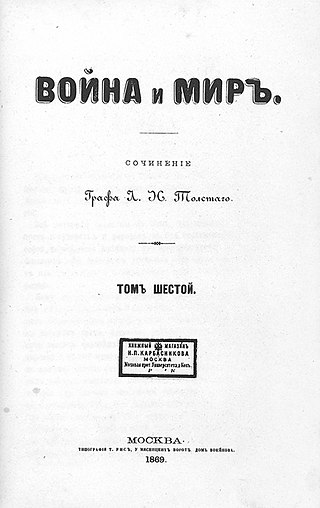
War and Peace is a literary work by Russian author Leo Tolstoy. Set during the Napoleonic Wars, the work mixes fictional narrative with chapters discussing history and philosophy. An early version was published serially beginning in 1865, after which the entire book was rewritten and published in 1869. It is regarded, with Anna Karenina, as Tolstoy's finest literary achievement and remains an internationally praised classic of world literature.

Ruth Barbara Rendell, Baroness Rendell of Babergh, was an English author of thrillers and psychological murder mysteries.
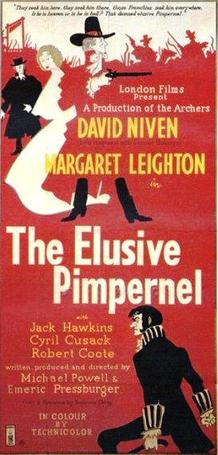
The Elusive Pimpernel is a 1950 British period adventure film by the British-based director-writer team of Michael Powell and Emeric Pressburger, based on the novel The Scarlet Pimpernel (1905) by Baroness Emmuska Orczy. It was released in the United States under the title The Fighting Pimpernel. The picture stars David Niven as Sir Percy Blakeney, Margaret Leighton as Marguerite Blakeney and features Jack Hawkins, Cyril Cusack and Robert Coote. Originally intended to be a musical, the film was re-worked as a light-hearted drama.
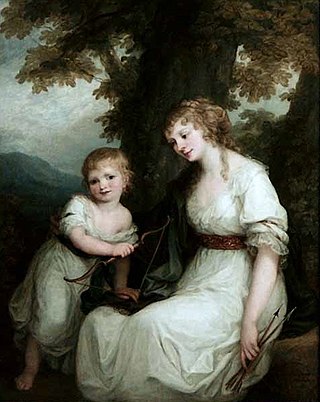
Beate Barbara Juliane Freifrau von Krüdener, often called by her formal French name, Madame de Krüdener, was a Baltic German religious mystic, author, and Pietist Lutheran theologian who exerted influence on wider European Protestantism, including the Swiss Reformed Church and the Moravian Church, and whose ideas influenced Tsar Alexander I of Russia.

Adventure fiction is a type of fiction that usually presents danger, or gives the reader a sense of excitement. Some adventure fiction also satisfies the literary definition of romance fiction.

Ali and Nino is a novel about a romance between a Muslim Azerbaijani boy and Christian Georgian girl in Baku in the years 1914–1920. It explores the dilemmas created by "European" rule over an "Oriental" society and presents a tableau portrait of Azerbaijan's capital, Baku, during the Azerbaijan Democratic Republic period that preceded the long era of Soviet rule. It was published under the pseudonym Kurban Said. The novel has been published in more than 30 languages, with more than 100 editions or reprints. The book was first published in Vienna in German in 1937, by E.P. Tal Verlag. It is widely regarded as a literary masterpiece and since its rediscovery and global circulation, which began in 1970, it is commonly considered the national novel of Azerbaijan. The English translation, by Jenia Graman, was published in 1970.

The Mayerling incident is the series of events surrounding the apparent murder–suicide pact of Rudolf, Crown Prince of Austria, and his lover, baroness Mary Vetsera. They were found dead on 30 January 1889 in an imperial hunting lodge in Mayerling. Rudolf, who was married to Princess Stéphanie of Belgium, was the only son of Emperor Franz Joseph and Empress Elisabeth, and was heir apparent to the throne of Austria-Hungary.

Mayerling is a 1968 romantic tragedy film starring Omar Sharif, Catherine Deneuve, James Mason, Ava Gardner, Geneviève Page, James Robertson Justice and Andréa Parisy. It was written and directed by Terence Young. The film was made by Les Films Corona and Winchester and distributed by Metro-Goldwyn-Mayer.

Eldorado, by Baroness Orczy is a sequel book to the classic adventure tale, The Scarlet Pimpernel. It was first published in 1913. The novel is notable in that it is the partial basis for most of the film treatments of the original book.
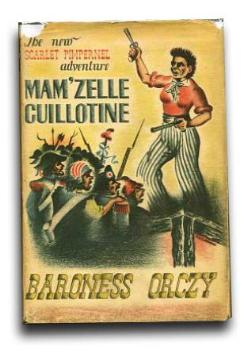
Mam'zelle Guillotine, by Baroness Orczy, is a sequel book to the classic adventure tale, The Scarlet Pimpernel. First published in 1940, it was the last novel Orczy wrote featuring the Pimpernel and is dedicated to those fighting in World War II.
"To all those who are fighting in the air, on the water and on land for our country and for our homes, I dedicate this because it is to them that we shall owe a happy issue out of all our troubles and a lasting peace." - Emmuska Orczy - Monte Carlo - 1939-40

The Laughing Cavalier is a 1913 adventure novel by Baroness Orczy, which revolves around Percy Blakeney, a foreign adventurer and ancestor of Orczy's famous character, the Scarlet Pimpernel. The story takes place in Holland in 1623/1624 and is partly inspired by Frans Hals' painting The Laughing Cavalier: in the novel, Blakeney is Frans Hals' adopted son and the man who poses for the painting of the Laughing Cavalier.
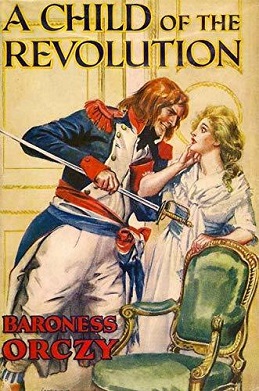
First published in 1932, A Child of the Revolution is a book in the Scarlet Pimpernel series written by Baroness Orczy. It is chronologically the last book in the Scarlet Pimpernel series.
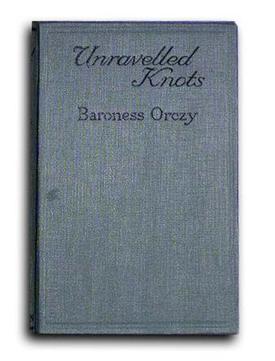
Unravelled Knots, by Baroness Orczy, author of the Scarlet Pimpernel series, contains thirteen short stories about the Old Man in the Corner, Orzy's armchair detective who solves crimes for his own entertainment. This is the last of three books of short stories featuring the detective and follows those in The Old Man in the Corner and The Case of Miss Elliott.

The Emperor's Candlesticks is a 1937 historical drama film starring William Powell and Luise Rainer and directed by George Fitzmaurice. It is based on the 1899 novel of the same name by Baroness Orczy. The story follows the adventures of spies from opposing sides who fall in love while following the eponymous candlesticks—and the papers hidden inside them—all over turn-of-the-20th-century Europe.

The coronation of the emperor of Russia from 1547 to 1917, was a highly developed religious ceremony in which they are crowned and invested with regalia, then anointed with chrism and formally blessed by the church to commence his reign. Although rulers of Muscovy had been crowned prior to the reign of Ivan III, their coronation rituals assumed overt Byzantine overtones as the result of the influence of Ivan's wife Sophia Paleologue, and the imperial ambitions of his grandson, Ivan the Terrible. The modern coronation, introducing "Western European-style" elements, replaced the previous "crowning" ceremony and was first used for Catherine I in 1724. Since tsarist Russia claimed to be the "Third Rome" and the replacement of Byzantium as the true Christian state, the Russian rite was designed to link its rulers and prerogatives to those of the so-called "Second Rome" (Constantinople).
The Wimsey Papers are a series of articles by Dorothy L. Sayers published between November 1939 and January 1940 in The Spectator. They had the form of letters exchanged by members of the Wimsey family and other characters familiar to readers of the Lord Peter Wimsey detective novels; but the articles were intended to convey Sayers's opinions and commentaries on various aspects of public life in the early months of the Second World War.

Grand Duchess Olga Nikolaevna of Russia was the eldest child of the last Russian emperor, Nicholas II, and of his wife Alexandra.
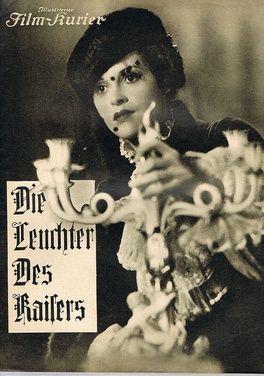
The Emperor's Candlesticks is a 1936 Austrian historical adventure film directed by Karl Hartl and starring Sybille Schmitz, Karl Ludwig Diehl and Friedl Czepa. It is an adaptation of Baroness Orczy's 1899 novel The Emperor's Candlesticks. A Hollywood film version of the story The Emperor's Candlesticks was released the following year.



















